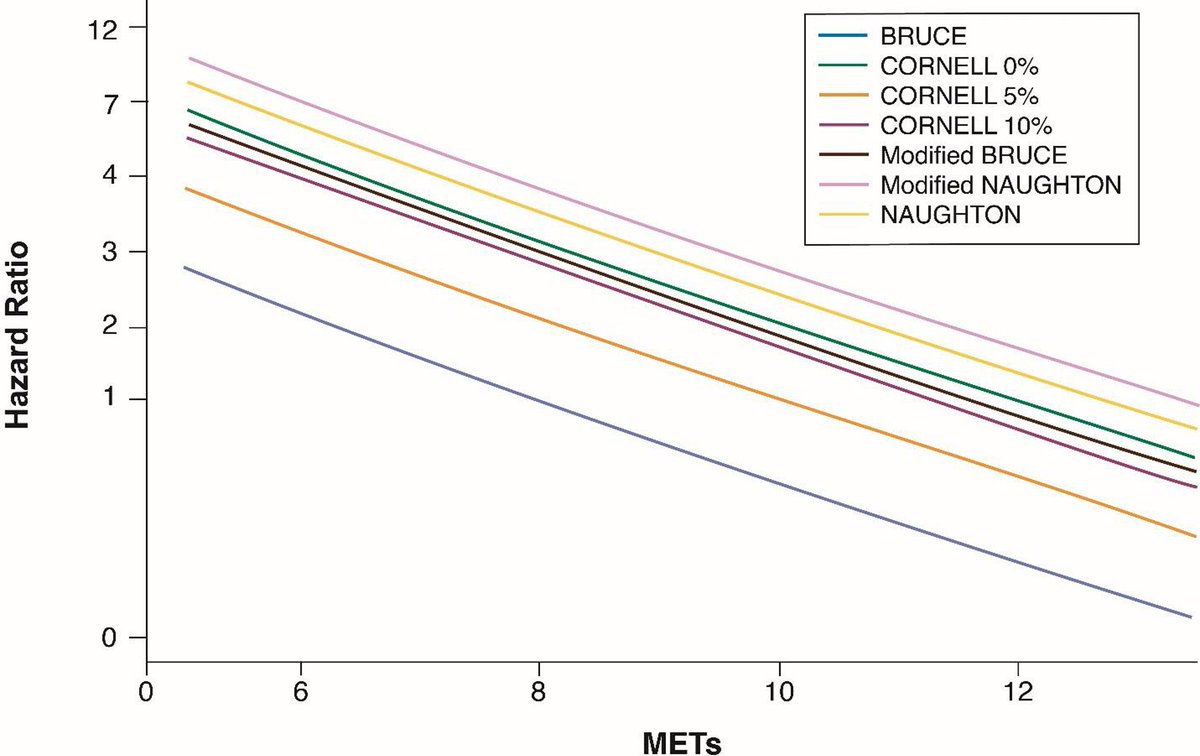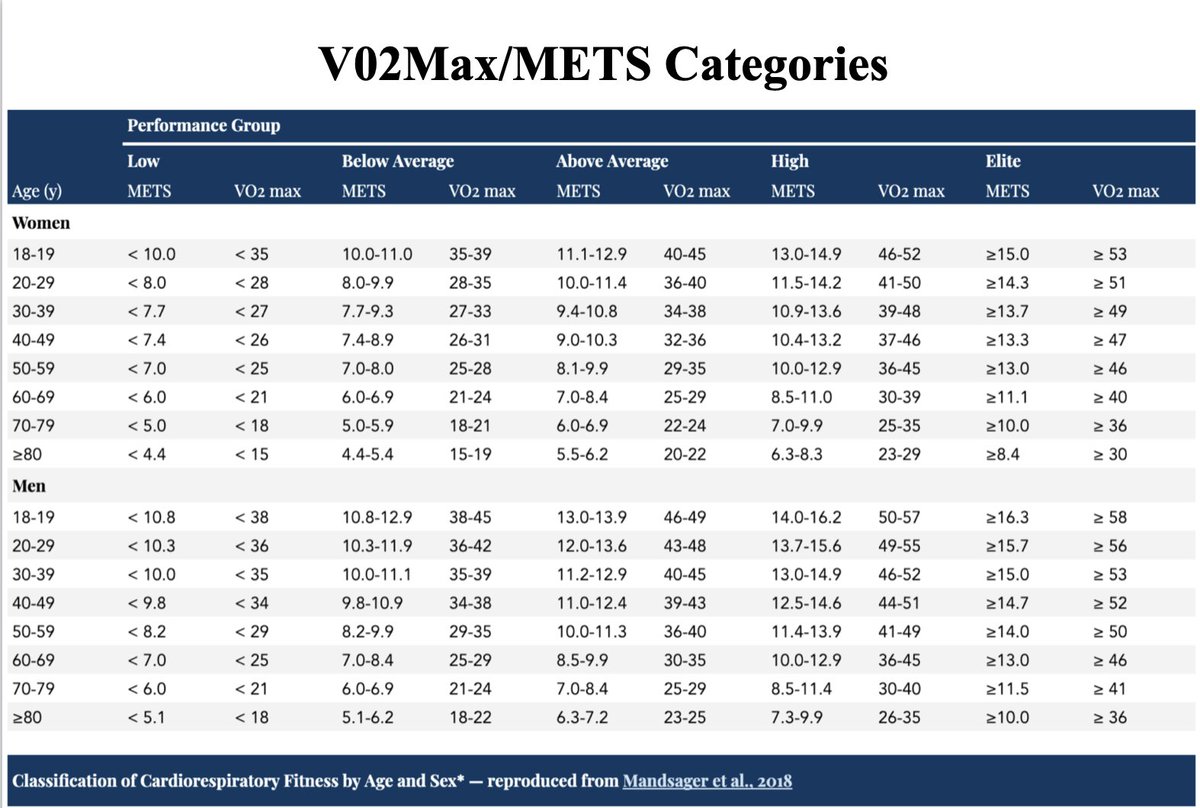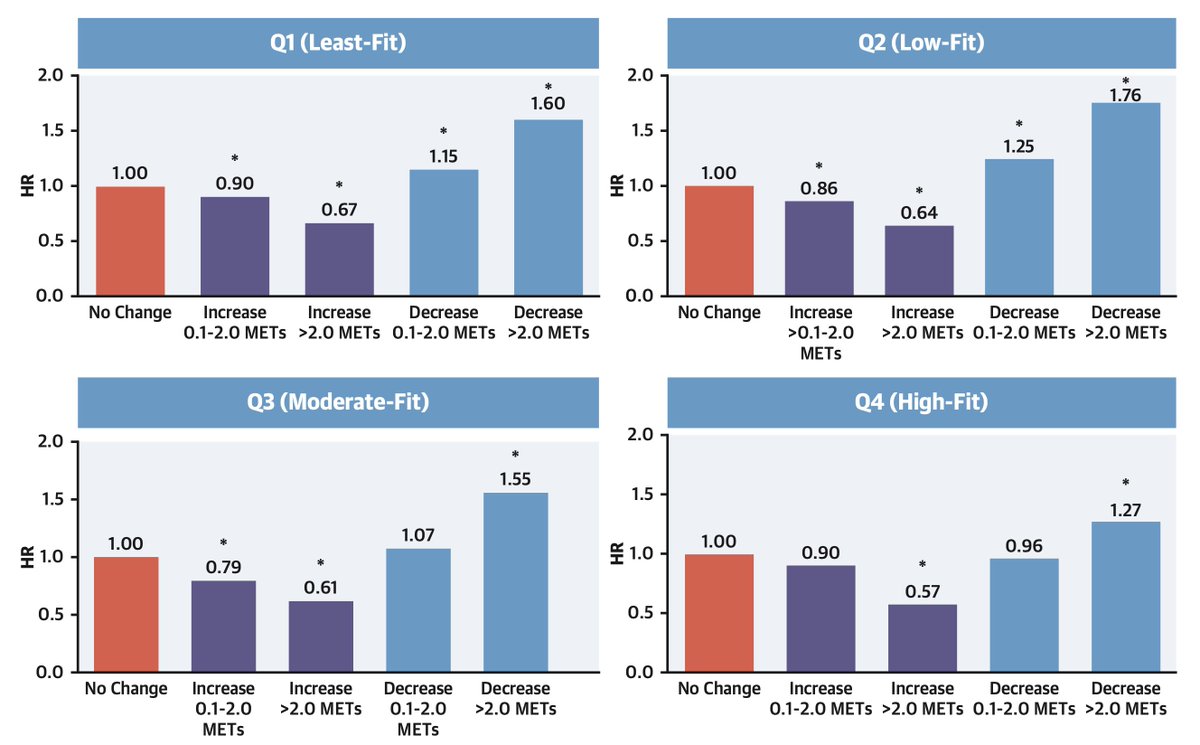Exercise Stress Tests Are Incredibly Useful
Just not for the reasons you might think.
✅Make sure to bookmark 📕
🧵👇
/1
Just not for the reasons you might think.
✅Make sure to bookmark 📕
🧵👇
/1

If you are ‘getting your heart checked’
You must do an exercise stress test, right?
Well. Not any more.
Here’s why.
Let’s first state our goal when we are in the business of ‘Heart Disease Prevention’:
/2
You must do an exercise stress test, right?
Well. Not any more.
Here’s why.
Let’s first state our goal when we are in the business of ‘Heart Disease Prevention’:
/2
"To delay the onset of coronary artery disease (atherosclerosis/plaque) that might rupture and cause a heart attack."
The more plaque you have, the higher the risk of an event such as a heart attack.
And the less plaque you have, the lower the risk of a heart attack.
/3
The more plaque you have, the higher the risk of an event such as a heart attack.
And the less plaque you have, the lower the risk of a heart attack.
/3

Do exercise stress tests tell you whether or not you have plaque in your coronary arteries?
No.
They can indicate if there is plaque causing an obstruction to flow down the artery
But they are not looking for the plaque itself.
Doctors know this.
But patients don't.
/4
No.
They can indicate if there is plaque causing an obstruction to flow down the artery
But they are not looking for the plaque itself.
Doctors know this.
But patients don't.
/4
It is not uncommon for a patient to have a stress test because they are worried about heart disease
‘Pass it with flying colours’ and be told that “All is well”.
Then have a heart attack 3 days later.
How is this possible if they “Passed their stress test”?
/5
‘Pass it with flying colours’ and be told that “All is well”.
Then have a heart attack 3 days later.
How is this possible if they “Passed their stress test”?
/5
Because the stress was not looking for the presence of plaque in the coronary arteries.
It was looking for the presence of an obstruction to flow down the artery.
This distinction is crucial to understand
As most heart attacks occur as a result of non-obstructive plaque.
/6
It was looking for the presence of an obstruction to flow down the artery.
This distinction is crucial to understand
As most heart attacks occur as a result of non-obstructive plaque.
/6

This is not to say that non-obstructive plaque of less than 70% is more dangerous
It’s just that it is silent and without symptoms.
And it’s also WAY more common.
So you can have a perfectly normal stress test and still have lots and lots of plaque.
/7
It’s just that it is silent and without symptoms.
And it’s also WAY more common.
So you can have a perfectly normal stress test and still have lots and lots of plaque.
/7
Surprised?
You shouldn’t be.
But many people are.
So, is there any value in the information obtained during an exercise stress test?
The answer is yes.
But it’s not related to whether or not you have any plaque in your coronary arteries.
/8
You shouldn’t be.
But many people are.
So, is there any value in the information obtained during an exercise stress test?
The answer is yes.
But it’s not related to whether or not you have any plaque in your coronary arteries.
/8
The standard exercise stress test puts you through a series of higher workloads
And is looking for details that might suggest a narrowed artery. ie chest pain or ECG changes.
The report will also include the number of METS you achieved.
/9
And is looking for details that might suggest a narrowed artery. ie chest pain or ECG changes.
The report will also include the number of METS you achieved.
/9
MET stands for Metabolic Equivalent of Task and is a measure of the amount of energy you expended during the test.
There is a clear relationship between:
The number of METS you can expend.
And the likelihood of dying from ANYTHING in the near future.
/10
There is a clear relationship between:
The number of METS you can expend.
And the likelihood of dying from ANYTHING in the near future.
/10

More METs. Longer Life.
Here is a chart you can use for reference, which will also give you an indication of your V02 Max based on the METs achieved.
/11
Here is a chart you can use for reference, which will also give you an indication of your V02 Max based on the METs achieved.
/11

But what if you start to exercise more to improve that figure?
Does it decrease your odds of dying FROM ANY CAUSE over the following decade?
The answer is Yes.
Increasing the amount of METs you can achieve improves your odds of survival.
/12
Does it decrease your odds of dying FROM ANY CAUSE over the following decade?
The answer is Yes.
Increasing the amount of METs you can achieve improves your odds of survival.
/12
Those in the least fit category at baseline who increased the number of METs they could achieve by more than 2 were 33% less likely to die.
Those who lost more than 2 METs were 60% more likely to die.
High-fitness people at baseline benefited the most, with ⬆️ in METS
/13
Those who lost more than 2 METs were 60% more likely to die.
High-fitness people at baseline benefited the most, with ⬆️ in METS
/13

The trajectory is clear.
Regardless of your baseline fitness level, if you improve it, you increase your odds of survival.
If it gets worse, you decrease your odds of survival.
This is why you need to exercise as if your life depended on it.
Because it does.
/14
Regardless of your baseline fitness level, if you improve it, you increase your odds of survival.
If it gets worse, you decrease your odds of survival.
This is why you need to exercise as if your life depended on it.
Because it does.
/14
“Was my stress test a waste of time?”
The answer is No.
But you need to see it more as an assessment of your functional capacity
And how it changes over time
Rather than a test that looks directly for plaque in your coronary arteries.
/15
The answer is No.
But you need to see it more as an assessment of your functional capacity
And how it changes over time
Rather than a test that looks directly for plaque in your coronary arteries.
/15
There is tremendous value in the information obtained during an exercise stress test.
It's just often not commented on.
The next time you "pass" a stress with 'Flying Colours'
Make sure to ask about the METS you achieved and decide for yourself.
/16
It's just often not commented on.
The next time you "pass" a stress with 'Flying Colours'
Make sure to ask about the METS you achieved and decide for yourself.
/16
Because even if you didn’t get a good result
You now know what to do to improve your odds.
Time to get to it.
/17
You now know what to do to improve your odds.
Time to get to it.
/17
That's a wrap!
If you enjoyed this thread:
👋 You might like to join 10K+ others on my free weekly newsletter on heart disease prevention and living longer.
If so, just click my Bio above and follow the link.
If you enjoyed this thread:
👋 You might like to join 10K+ others on my free weekly newsletter on heart disease prevention and living longer.
If so, just click my Bio above and follow the link.
https://twitter.com/125774989/status/1699317091378037108
• • •
Missing some Tweet in this thread? You can try to
force a refresh

 Read on Twitter
Read on Twitter












